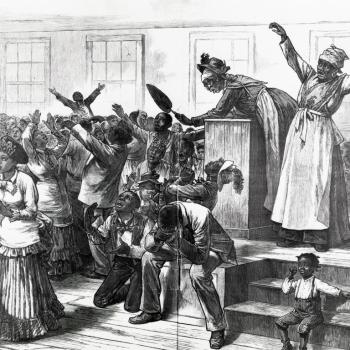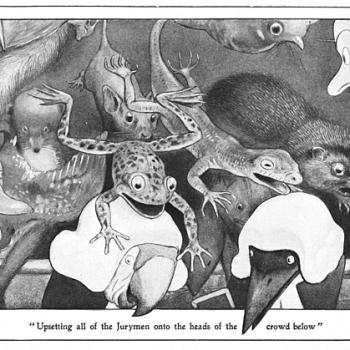 By Rob Moll
By Rob Moll
Evangelicalism, even more than other strands of the Christian faith, will find its future tightly bound to the future of American culture. Over the past thirty years, evangelicals have risen up and splintered apart with the Baby Boomers. Led by this cohort, we have warred over worship styles. We have fled the denominations, beginning with mainline denominations but continuing with evangelical ones. We have tailored megachurches to suit the upwardly mobile lifestyles of comfortable suburbanites. And, along the way, we have dissolved our former cross-denominational unity in favor of more narrow identifications: charismatic, reformed, emergent, and Canterbury-philes.
The story of evangelicalism over the near future will continue to be the story of the Boomers. Their individualistic tendencies, and more specifically their aging and passing, will have a profound and perhaps (ironically) a unifying influence on the fractious evangelicals.
In his study of the present causes of American political polarization, Bill Bishop found something surprising. It was not a political conspiracy of the Right or the Left that has caused the hyper-partisanship and extreme rhetoric that has paralyzed Congress. Neither was it loud-mouthed talk show hosts, nor manipulative corporations and their legions of lobbyists with armfuls of campaign cash, who turned meaningful political discourse into partisan bickering. Instead it was the simple congregating of like-minded people. Americans grew wealthier as the Baby Boomers grew up, and they began to spend more of their time and treasure expressing their tastes and values by moving near others with those same tastes and values.
People who are concerned about the environment, and who believe that the government has an extensive role to play in ensuring a socially just society, moved into the kinds of neighborhoods where others lived with the same concerns. They had no need to examine the voting rolls in order to recognize the towns that shared their values. Once they noticed the vegetarian sandwich shop and the independent grocery store with local, organic produce, they felt quite naturally that this was precisely the sort of place to raise their children. Those with conservative values made the same sorts of choices, and over a thirty-five-year period Republicans and Democrats ceased having discussions over the backyard fence. Rather, they watched discussions shouted out on cable television. As their tribes coalesced around them, individuals conformed to the group, further confirming and separating the tribes from one another.
But this "Big Sort," as Bishop calls it, has had profound consequences outside politics as well. Marketers sensed the trend, and cable television and websites for news and commentary ghettoized our media consumption, until Americans in a thousand other ways lived not as citizens of a country but as members of a tribe. Churches, particularly evangelical ones, followed suit. Using the "homogeneous unit principle," pastors crafted churches specifically for the types of people who had sorted themselves out by neighborhood. Rick Warren designed a church for the Saddleback Valley in Orange County. Bill Hybels surveyed the residents of Barrington, Illinois, before launching Willow Creek, a church created and tailored specifically for them.
Churches, Bishop notes, are no longer built for the religious confession of a geographic community. They're now designed to be the spiritual complement to a certain kind of lifestyle. As our diverse country sorts itself into ever smaller and more specific "tribes," this will present substantial problems politically and ecclesially. Politically, the federal government will become less capable of implementing nationwide policies when individual communities divide from one another and advocate for their thousands of separate interests. For the Christian church, the problems it poses are many:
- Religious leaders will face ever more pressure to fulfill the spiritual expectations of their congregations -- rather than to transform their lives.
- Evangelicals, already tremendously unfaithful to Jesus' prayer that his church "may be one," will separate further into congregations ever more finely targeted to the tastes and predilections of their local groups.
- The ability of the church to be salt, preserving and preventing the rotting of a culture, will be diluted as faith becomes an accessory to a lifestyle.
- The mission of the church to make disciples of all nations will further devolve into the growth of churches with the help of marketing and promotional tactics.
- Theological orthodoxy will be further confused with political identity.




